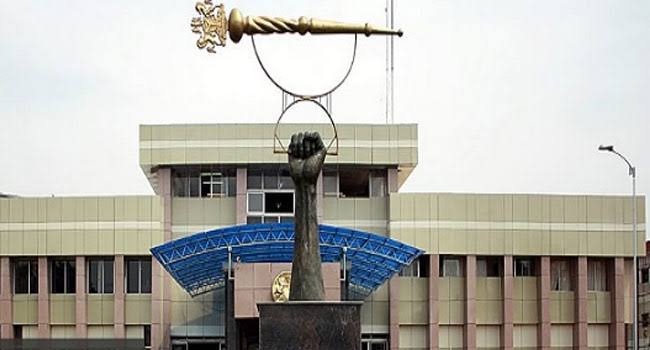By GbaramatuVoice Editorial Board
Oil bearing communities of Niger Delta, despite being the nation’s source of crude oil, had no easy access to Premium Motor Spirit (PMS) and other related products until 2004 when former President, Chief Olusegun Obasanjo, visited the region. As at that time, Chief Obasanjo resolved to alleviate the suffering of the riverine people who were confronted with the plight and pitiable condition of obtaining petroleum products from the hinterland. He did this by ensuring that petroleum products tapped from their soil would no longer go beyond their reach.
Subsequently, in 2005 the Federal Government directed the Nigerian National Petroleum Corporation (NNPC) to construct floating mega stations to address the petroleum products need of the riverine communities in the Niger Delta region. One of such floating mega stations was inaugurated on October 4, 2006 at Okerenkoko, Warri South-West Local Government Area of Delta State, ahead of 12 others initially approved by the Federal Government.
But sadly, most of the floating mega stations which started operations in the year 2013 have stopped functioning in 2015. These floating stations presently are best described as shadow of themselves, making riverine community dwellers to wallow in desperate search for petroleum products, as they continue to travel far and wide to obtain the vital product.
Unavailability of petroleum products at the riverine communities have made all spheres of life virtually unbearable. Discontinuation of supplies of petroleum products to floating mega stations by NNPC has no doubt inflicted hardship on inhabitants of coastal towns and villages.
Marine transport operators have continued to go far to the hinterlands to procure petroleum products and this has consequently resulted in very high cost of marine transportation as well as its attendant hike in prices of goods and services in those areas. This is because a litre of Premium Motor Spirit is bought between N225 and N250 as a result of the product’s scarcity in the riverine areas, which is an offshoot from the regulated retail pump prices in the hinterlands.
Meanwhile, the Nigerian National Petroleum Corporation had in different occasions denied allegations of abandoning the floating stations; rather it has blamed youth restiveness for the present state of the floating stations. But the excuse given by NNPC is not enough for stoppage of the operations of these floating stations. The NNPC should as a matter of fact take a cue from the few privately owned retail floating stations that are still operating in some parts of the coastal areas whose services are not enough for the petroleum products need of the people.
No doubt, with the floating stations in full operations the risk of travelling far to secure petroleum products would be eliminated just as their proximity would stabilise products prices and reduce marine transportation costs. The floating mega stations would also boost commercial activities in the coastal areas if fully operational as well as create job opportunities for indigenes of those coastal communities. No doubt with the floating mega stations dotting various areas of the riverine communities with regular supply of petroleum products, the products scarcity would be adequately tackled.

The recent move by Hon. Julius G. Pondi, member representing Burutu Federal Constituency at the Federal House of Representatives, in which he called for the resuscitation of the floating stations in the riverine communities is therefore commendable.
As resolved by the House of Representatives in its deliberation, the Nigerian National Petroleum Corporation should resume supply of petroleum products to the floating stations without further delay, and the products must be sold at the official rates obtainable nationwide.
The Petroleum Products Pricing Regulatory Agency (PPPRA) must swing into action by regulating the supply and distribution of products to the floating stations as directed by the green chamber.
Follow us on Twitter @gbaramatuvoice – Email @gbaramatuvoice@gmail.com
Support Quality Journalism in the Niger Delta Region
Join us in our mission to bring development journalism, cultural preservation, and environmental awareness to the forefront. Your contribution makes a difference in the lives of the people of the Niger Delta. Donate today and be a part of the change!










Leave feedback about this
You must be logged in to post a comment.